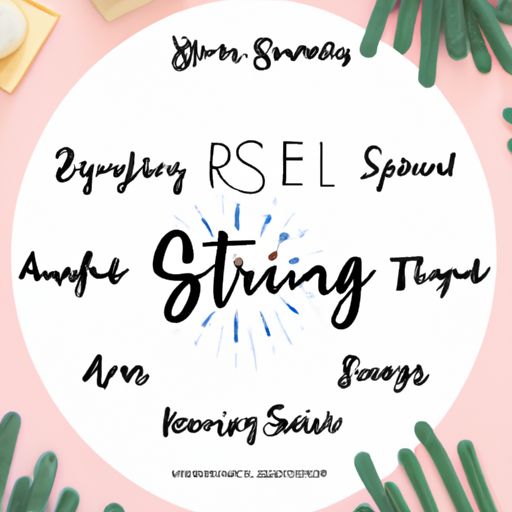9 Stress-Busting Practices To Feel Amazing
Master the Art of Mindfulness
One of the most effective stress-busting-practices, mindfulness, is all about focusing on the present moment. It’s about being completely attentive to what is happening right now and not letting your mind wander into worries of the past or anxieties of the future. But practicing mindfulness isn’t always easy. It’s often easier said than done.
Imagine this: you’re sitting in a quiet room, focusing on your breath. You clear your mind of all other thoughts, allowing yourself to fully immerse in the moment. This is mindfulness. It’s a simple practice, yet it can have a profound impact on your mental health and stress levels.
Practicing Mindfulness in Daily Life
But how do you incorporate mindfulness into your daily life? It’s about being intentional and slowing down. Maybe you set a positive intention for the day, like walking the scenic route to work or choosing healthy foods for your meals. And if you’re unsure how to get started, there are numerous books on mindfulness that can guide you on this journey.
The Healing Power of Aromatherapy
Aromatherapy is another age-old stress-busting-practice that relies on the power of essential oils to enhance our wellbeing. The method is simple: you can inhale the oils, mix them with a carrier oil like coconut or jojoba oil and apply them to the skin, or add them to a relaxing bath.
Imagine coming home after a long day at work, lighting an aromatherapy candle, and inhaling the soothing scent of lavender oil. This aromatic herb is praised for its ability to alleviate stress and anxiety. Plus, it possesses antibacterial properties that can promote wound healing. Meanwhile, chamomile oil can assist with insomnia, and ylang-ylang can boost your mood.
Experience the Relaxation of Thai Massage
Thai massage is a stress-busting-practice that originated from India’s healing traditions. It involves gentle stretches and pressure application to encourage relaxation and healing. According to a study featured in Healthline, massages can significantly reduce stress levels. Plus, Thai massages can uplift your energy levels and improve circulation. A regular Thai massage can do wonders for your wellness levels.
Breathe Your Stress Away
When stress is knocking on your door, the power of deep breathing should never be underestimated. It’s particularly beneficial for those battling anxiety. Take the ‘three-part breath’ technique, for instance. This yoga technique involves inhaling deeply to fill your lungs, engaging your chest, diaphragm, and abdomen. Then, you exhale completely. By breathing fully, we allow maximum oxygen to reach our blood vessels, promoting relaxation and stress relief.
Final Thoughts
Stress is an inevitable part of life, but it doesn’t have to take the driver’s seat. By incorporating stress-busting-practices like mindfulness, aromatherapy, Thai massage, and deep breathing into your daily routine, you can take control of your stress levels and lead a healthier, happier life.
| Mindfulness Techniques | Description | Benefits |
|—|—|—|
| Focused Meditation | Involves focusing solely on one point (e.g., breathing) to keep the mind present and free of wandering thoughts. | Improves concentration, reduces anxiety and stress, promotes relaxation. |
| Setting Positive Intentions | A daily practice of setting a purposeful, positive goal for the day. | Promotes positivity, helps in goal setting, and encourages self-awareness. |
| Aromatherapy | Use of essential oils for health benefits. Can be inhaled, added to bath, or applied to skin with carrier oils. | Reduces stress, boosts mood, helps with insomnia, and has antibacterial properties. |
| Thai Massage | A massage therapy involving gentle pressure and stretching to promote relaxation and healing. | Reduces stress, boosts energy levels, improves circulation, and promotes overall wellness. |
| Breathing Techniques | Deep and conscious breathing exercises, like the ‘three-part breath’ used in yoga. | Reduces stress and anxiety, promotes relaxation, improves oxygen supply to blood vessels. |

Deepening Your Understanding of Mindfulness
While the concept of mindfulness may seem straightforward, there’s a lot more to this stress-busting practice than meets the eye. It’s not just about being present in the moment, but also about achieving a sense of inner peace and tranquility. This involves acknowledging and accepting your thoughts and feelings without judgement. By doing so, you can reduce feelings of anxiety and stress, and increase your overall sense of wellbeing.
There are a number of mindfulness techniques you can try, from mindfulness-based cognitive therapy (MBCT) to mindfulness-based stress reduction (MBSR). These techniques combine traditional mindfulness practices with cognitive behavioral therapy, providing you with powerful tools to combat stress and anxiety.
Expanding Mindfulness into Your Everyday Activities
Mindfulness isn’t just for meditation – it can be incorporated into every aspect of your life. This could involve mindful eating, where you focus on the taste, texture, and smell of your food, or mindful walking, where you pay attention to the sensation of your feet hitting the ground. By bringing mindfulness into your daily activities, you can turn mundane tasks into opportunities for stress relief and personal growth.
The Science Behind Aromatherapy
Aromatherapy isn’t just about pleasant smells – it’s a scientifically-backed stress-busting practice. Studies have shown that certain essential oils can affect the limbic system, the part of the brain that controls emotions. This can lead to reduced feelings of stress and anxiety. Additionally, some oils have been shown to have physiological effects, such as reducing blood pressure and heart rate.
Exploring Different Types of Massage
While Thai massage is a wonderful stress-busting practice, it’s not the only type of massage that can help reduce stress. Swedish massage, for example, uses long, flowing strokes to relax muscles and improve circulation. Deep tissue massage, on the other hand, uses more intense pressure to target deeper layers of muscle and connective tissue. Each type of massage has its own unique benefits, so it’s worth exploring different options to see what works best for you.
The Physiology of Deep Breathing
Deep breathing is more than just a relaxation technique – it’s a powerful tool that can positively affect your physical and mental health. When you breathe deeply, you activate your body’s relaxation response, which can lower your heart rate, blood pressure, and levels of stress hormones. Additionally, deep breathing can improve your digestion, boost your immune system, and even help you sleep better.
Frequently Asked Questions about Stress-Busting Practices
How long does it take to see results from mindfulness?
While some people may notice immediate benefits, it usually takes several weeks of regular practice to see significant changes. Remember, mindfulness is a skill that takes time to develop.
Are there any risks associated with aromatherapy?
While essential oils are generally safe for most people, they can cause allergic reactions in some individuals. Always do a patch test before applying an oil to your skin, and never ingest essential oils without the guidance of a trained professional.
How often should I get a massage?
While there’s no one-size-fits-all answer to this question, most experts recommend getting a massage at least once a month for general wellness. If you’re using massage to address a specific issue, you may need more frequent sessions.
Can deep breathing exercises be harmful?
While deep breathing is generally safe, it can cause dizziness or lightheadedness in some individuals. Always listen to your body and stop if you feel uncomfortable.
Takeaway
Stress is a common part of modern life, but it doesn’t have to control you. By incorporating stress-busting practices like mindfulness, aromatherapy, massage, and deep breathing into your daily routine, you can manage your stress levels and improve your overall wellbeing. Remember, it’s important to tailor these practices to your individual needs and preferences – what works for one person may not work for another. The key is to find what works best for you and stick with it.
Frequently Asked Questions
1. What is mindfulness?
Mindfulness is the practice of focusing on the present moment. It involves being fully attentive to what is happening right now, without pondering over past worries or future anxieties. It is known to be an effective stress-busting-practice.
2. How can mindfulness be practiced daily?
Mindfulness can be incorporated into daily life by being intentional and slowing down. This might involve setting a positive intention for the day, such as walking a scenic route to work or choosing healthy foods for meals. There are also many books on mindfulness that can guide you in this process.
3. What is aromatherapy?
Aromatherapy is a stress-busting-practice that uses essential oils to enhance wellbeing. You can inhale these oils, mix them with a carrier oil and apply to your skin, or add them to a bath.
4. What are the benefits of Thai massage?
Thai massage, originating from India’s healing traditions, involves gentle stretches and pressure application to promote relaxation and healing. It can reduce stress levels, uplift energy levels, and improve circulation.
5. How can deep breathing help in stress management?
Deep breathing, such as the ‘three-part breath’ technique, can be a powerful tool for stress relief. It involves inhaling deeply to fill the lungs, and then exhaling completely. This allows maximum oxygen to reach our blood vessels, promoting relaxation and stress relief.
6. Can these practices actually reduce stress?
Yes, mindfulness, aromatherapy, Thai massage, and deep breathing are all proven stress-busting-practices. They can help you manage your stress levels and lead a healthier, happier life.
Tables
| Stress-Busting-Practices | Benefits |
|---|---|
| Mindfulness | Focus on the present moment, reduces stress and anxiety |
| Aromatherapy | Enhances wellbeing, alleviates stress and anxiety |
| Thai Massage | Relaxes and heals, reduces stress, uplifts energy, improves circulation |
| Deep Breathing | Relieves stress, promotes relaxation |


